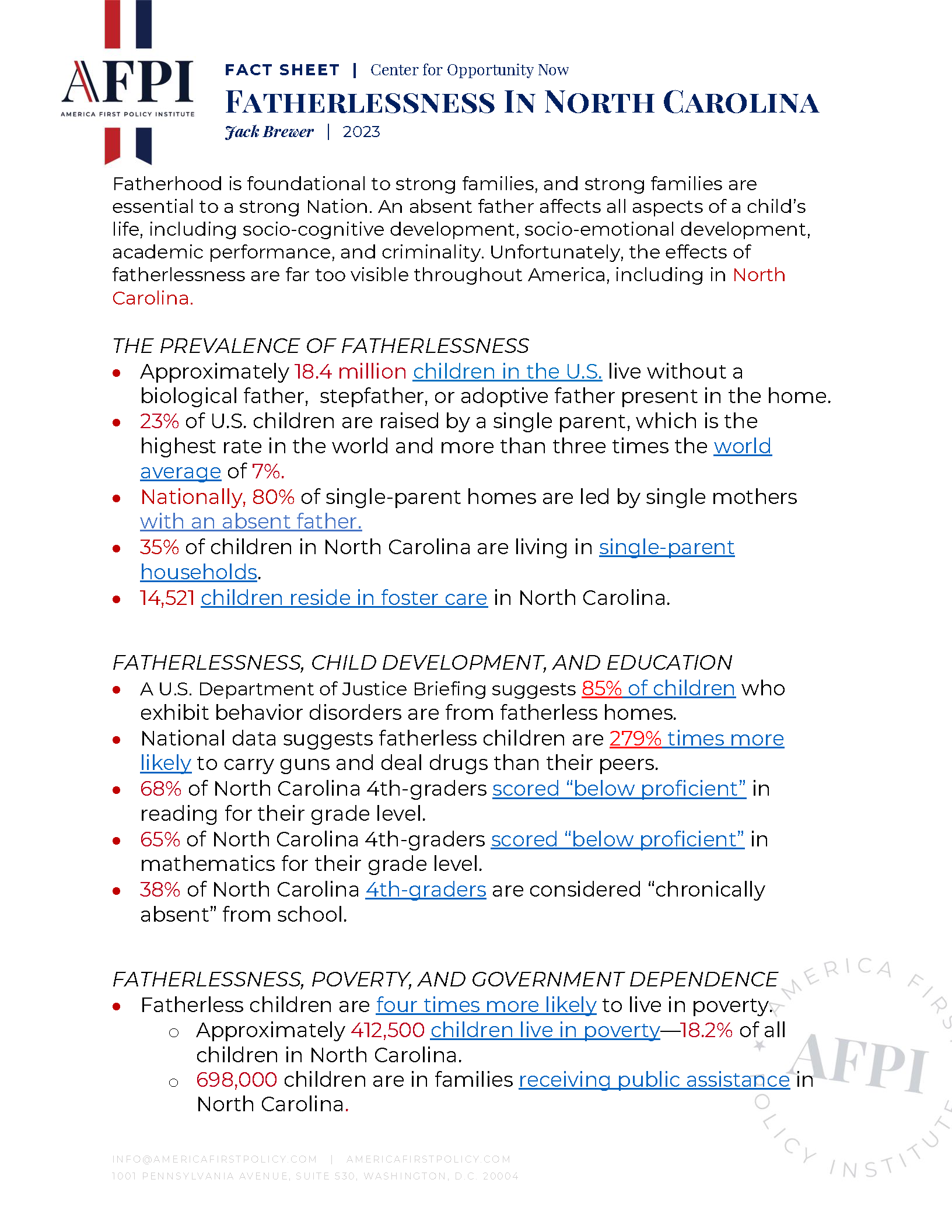Jack Brewer ,
December 14, 2023
Fatherlessness In North Carolina
Fatherhood is foundational to strong families, and strong families are essential to a strong Nation. An absent father affects all aspects of a child’s life, including socio-cognitive development, socio-emotional development, academic performance, and criminality. Unfortunately, the effects of fatherlessness are far too visible throughout America, including in North Carolina.
THE PREVALENCE OF FATHERLESSNESS
- Approximately 18.4 million children in the U.S. live without a biological father, stepfather, or adoptive father present in the home.
- 23% of U.S. children are raised by a single parent, which is the highest rate in the world and more than three times the world average of 7%.
- Nationally, 80% of single-parent homes are led by single mothers with an absent father.
- 35% of children in North Carolina are living in single-parent households.
- 14,521 children reside in foster care in North Carolina.
FATHERLESSNESS, CHILD DEVELOPMENT, AND EDUCATION
- A U.S. Department of Justice Briefing suggests 85% of children who exhibit behavior disorders are from fatherless homes.
- National data suggests fatherless children are 279% times more likely to carry guns and deal drugs than their peers.
- 68% of North Carolina 4th-graders scored “below proficient” in reading for their grade level.
- 65% of North Carolina 4th-graders scored “below proficient” in mathematics for their grade level.
- 38% of North Carolina 4th-graders are considered “chronically absent” from school.
FATHERLESSNESS, POVERTY, AND GOVERNMENT DEPENDENCE
- Fatherless children are four times more likely to live in poverty.
- Approximately 412,500 children live in poverty—18.2% of all children in North Carolina.
- 698,000 children are in families receiving public assistance in North Carolina.
